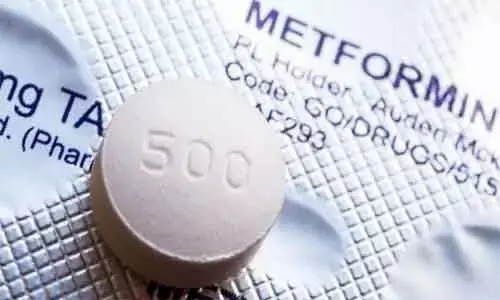- Home
- Medical news & Guidelines
- Anesthesiology
- Cardiology and CTVS
- Critical Care
- Dentistry
- Dermatology
- Diabetes and Endocrinology
- ENT
- Gastroenterology
- Medicine
- Nephrology
- Neurology
- Obstretics-Gynaecology
- Oncology
- Ophthalmology
- Orthopaedics
- Pediatrics-Neonatology
- Psychiatry
- Pulmonology
- Radiology
- Surgery
- Urology
- Laboratory Medicine
- Diet
- Nursing
- Paramedical
- Physiotherapy
- Health news
- Fact Check
- Bone Health Fact Check
- Brain Health Fact Check
- Cancer Related Fact Check
- Child Care Fact Check
- Dental and oral health fact check
- Diabetes and metabolic health fact check
- Diet and Nutrition Fact Check
- Eye and ENT Care Fact Check
- Fitness fact check
- Gut health fact check
- Heart health fact check
- Kidney health fact check
- Medical education fact check
- Men's health fact check
- Respiratory fact check
- Skin and hair care fact check
- Vaccine and Immunization fact check
- Women's health fact check
- AYUSH
- State News
- Andaman and Nicobar Islands
- Andhra Pradesh
- Arunachal Pradesh
- Assam
- Bihar
- Chandigarh
- Chattisgarh
- Dadra and Nagar Haveli
- Daman and Diu
- Delhi
- Goa
- Gujarat
- Haryana
- Himachal Pradesh
- Jammu & Kashmir
- Jharkhand
- Karnataka
- Kerala
- Ladakh
- Lakshadweep
- Madhya Pradesh
- Maharashtra
- Manipur
- Meghalaya
- Mizoram
- Nagaland
- Odisha
- Puducherry
- Punjab
- Rajasthan
- Sikkim
- Tamil Nadu
- Telangana
- Tripura
- Uttar Pradesh
- Uttrakhand
- West Bengal
- Medical Education
- Industry
Metformin effective for improving blood counts in children with Fanconi anemia: Study

USA: Findings from a recent study in Blood Advances suggest that metformin is safe and well tolerated therapeutic approach in non-diabetic pediatric patients with fanconi anemia (FA).
Fanconi anemia is a genetic DNA repair disorder characterized by cancer susceptibility and failure of bone marrow. Metformin was shown to improve blood counts and delay tumor development in FA mice. Considering this, Jessica A. Pollard, Pediatric Hematology-Oncology, Boston Children's Hospital, Boston, MA, and colleagues conducted a single institution study of metformin in nondiabetic patients with FA to determine tolerability and feasibility of metformin treatment and to assess for improvement in blood counts.
Fourteen of 15 patients with at least 1 cytopenia (hemoglobin < 10 g/dL; platelet count < 100 000 cells/µL; or an absolute neutrophil count < 1000 cells/µL) met the eligivilty criteria to receive metformin for 6 months. Median age of patients was 9.4 years (range 6.0-26.5 ).
Based on the study, the researchers reported the following:
- Thirteen of 14 subjects (93%) tolerated maximal dosing for age; 1 subject had dose reduction for grade 2 gastrointestinal symptoms.
- No subjects developed hypoglycemia or metabolic acidosis.
- No subjects had dose interruptions caused by toxicity, and no grade 3 or higher adverse events attributed to metformin were observed.
- Hematologic response based on modified Myelodysplastic Syndrome International Working Group criteria was observed in 4 of 13 evaluable patients (30.8%).
- Median time to response was 84.5 days (range 71-128 days).
- Responses were noted in neutrophils (n = 3), platelets (n = 1), and red blood cells (n = 1).
- No subjects met criteria for disease progression or relapse during treatment.
- Correlative studies explored potential mechanisms of metformin activity in FA.
- Plasma proteomics showed reduction in inflammatory pathways with metformin.
This led to the conclusion that metformin is safe and tolerable in nondiabetic patients with FA and may provide therapeutic benefit.
Reference:
Pollard JA, Furutani E, Liu S, Esrick E, Cohen LE, Bledsoe J, Liu CW, Lu K, de Haro MJR, Surrallés J, Malsch M, Kuniholm A, Galvin A, Armant M, Kim AS, Ballotti K, Moreau L, Zhou Y, Babushok D, Boulad F, Carroll C, Hartung H, Hont A, Nakano T, Olson T, Sze SG, Thompson AA, Wlodarski MW, Gu X, Libermann TA, D'Andrea A, Grompe M, Weller E, Shimamura A. Metformin for treatment of cytopenias in children and young adults with Fanconi anemia. Blood Adv. 2022 Jun 28;6(12):3803-3811. doi: 10.1182/bloodadvances.2021006490. PMID: 35500223.
Dr Kamal Kant Kohli-MBBS, DTCD- a chest specialist with more than 30 years of practice and a flair for writing clinical articles, Dr Kamal Kant Kohli joined Medical Dialogues as a Chief Editor of Medical News. Besides writing articles, as an editor, he proofreads and verifies all the medical content published on Medical Dialogues including those coming from journals, studies,medical conferences,guidelines etc. Email: drkohli@medicaldialogues.in. Contact no. 011-43720751


